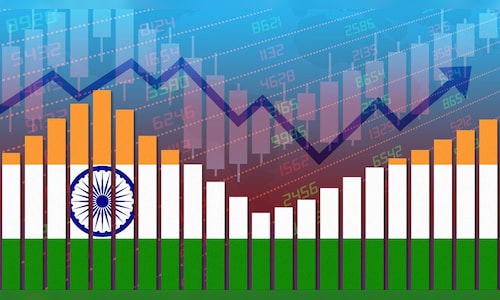Our Terms & Conditions | Our Privacy Policy
India needs to sustain 7-8% growth to win foreign investors’ confidence: Amansa Capital’s Akash Prakash
India’s equity markets have recorded a remarkable five-year streak with no net foreign portfolio investment (FPI) inflows, which indicates “an incredibly long time”, according to Akash Prakash, CEO of Amansa Capital.
The current year has seen outflows reaching nearly $13 billion so far, driving foreign ownership levels in Indian equities to their lowest in 15 years, Prakash highlighted in an opinion piece published in the Business Standard. Meanwhile, regional, global and emerging market (EM) investment funds remain underweight on India, reinforcing its status as a “consensus sell” internationally.
The lack of foreign interest stems from a broader disillusionment with emerging market (EM) equities.
“EM equities have been a horrendous place to invest, dramatically underperforming both the United States and global equities. A hundred dollars invested in EM equities 15 years ago is today worth $180, compared to almost $500 if it had been invested in global indices,” the seasoned fund manager outlined.
“Within this context, India has massively outperformed. Over the past five years, MSCI India delivered dollar returns of almost 15% per annum, compared to just 5 per cent for the broader EM index,” he added.
Despite this, India’s strong performance has made it a target for profit-taking. Global investors, particularly US endowments and foundations, sell Indian equities to address liquidity issues caused by overexposure to private assets, Prakash wrote.
India must demonstrate a credible path to sustained 7–8% economic growth to regain foreign investors’ confidence.
“However, for India to get more than its fair share, we have to convince global investors of the sustainability of our 7-8 per cent growth algorithm…The willingness to pay up will come if investors believe we have 20 years of 7 per cent economic growth ahead,” the analyst emphasised.
This requires urgent reforms to boost competitiveness and establish dominance in key global industries.
“The last few weeks have also shown us that only economic leverage matters. We frankly have very little. It does not matter that we may be the fourth-largest economy; what is our leverage? We must strive for dominance in certain industries. Absent this, we will never have enough leverage,” he added.
India’s economic growth has slowed down over the past 12–18 months, remaining under 6% annually. Corporate earnings have also disappointed, with earnings per share (EPS) growth projected at just 10% for the current fiscal year.
“For a market trading at over 20 times forward earnings, earnings disappointments cannot be afforded. You cannot be the second-most expensive market in the world — far above EM valuations — and deliver just 10% EPS growth,” he mentioned.
ALSO READ | PMJDY completes 11 years: 561 million accounts opened, deposits cross ₹2.68 lakh crore
The Singapore-based fund manager added that India’s limited role in the global artificial intelligence (AI) boom is a big concern. He says that AI stocks have driven over 50% of the S&P 500’s returns since ChatGPT’s launch.
“India is also being seen as an artificial intelligence (AI) loser…. We do not have much of a play on large language models (LLMs) or the buildout of AI/data centre infrastructure.”
He also raised questions about the future of IT services in the country. “Some fear the industry may actually shrink in terms of manpower over the coming five years as AI reduces the need for software engineers.”
ALSO READ | Record state borrowing spree pushes Indian bond yields higher
Despite these headwinds, domestic investors remain undeterred, with equity flows continuing to accelerate even after a year of flat returns.
“Domestic equity flows appear to be more structural in nature. Even today, after 12 months of zero returns, flows continue to accelerate! When the foreign buyer returns, it could have a disproportionate price impact. We have forgotten how markets react when foreigners and locals buy in competition with each other; it has not happened for five years,” he wrote.
Images are for reference only.Images and contents gathered automatic from google or 3rd party sources.All rights on the images and contents are with their legal original owners.



Comments are closed.